"You a lesbian?"
This is how a conversation starts between two leads, Deborah Vance (Jean Smart), an older and established Las Vegas comedian, and Ava Daniels (Hannah Einbinder), her new young writer, in the second episode of HBO Max's critically acclaimed and Emmy Award-winning series Hacks.
"Not sure you can ask me that," Ava responds, before launching into a full-blown explanation of her sexuality. "I used to only hook up with men, but when I masturbated, I thought about women. So then in college I finally hooked up with this amazing TA, Phoebe. And I realized that I could connect more emotionally with women, which led to deeper sexual experiences. But sometimes I do still need penetrative sex with a dick to come. But I don't know, maybe I was just conditioned to the porn that was fed to me by the algorithm, you know? So anyway, I'm bi."
"Jesus Christ," Deborah finally says, "I was just wondering why you were dressed like Rachel Maddow's mechanic."
And that's Hacks. Told in the language of setups and punch lines, the show uses the push and pull between these two women to explore their characters through the shared language of jokes.
This conversation fits seamlessly into the mold of the show, but it also quietly -- or not so quietly -- nudges at a new boundary of bisexual representation on television.
Check out GLAAD's interview with Einbinder as part of #BiWeek.
GLAAD's most recent Where We Are on TV study found that 28 percent of the LGBTQ characters counted on scripted prime-time broadcast, cable, and streaming for the 2020-2021 season were bisexual+ (bisexual, pansexual, queer, etc.). Compare this to a Williams Institute study that shows that 52 percent of LGB people are bisexual+ and recent polling from Gallup, which cites bi+ people as being 54.6 percent of LGBTQ adults -- and it becomes clear that television falls far short of real life in telling bisexual stories.
Beyond that, of the bi+ characters currently on television, so many of them don't actually use the word "bi" or "bisexual." Of course, characters are free to label themselves however they see fit, but there is power in a word, especially the word "bisexual," which has often been left unspoken on television. So to hear it spoken so casually on Hacks sets a new precedent for bi characters to be able to casually speak about their identity the way any other character would.
Another striking thing about Ava's monologue about her bisexuality is that it's a little shocking and a little messy. There's a history of television portraying bi characters as no more than defamatory stereotypes -- adulterous, inherently promiscuous, transactional, or disloyal -- which has thankfully slightly declined over the years. Sometimes, however, the pendulum swings too far in the other direction, and bisexual and queer characters aren't given the same humanity -- including flaws and conflicts -- and development as their queer counterparts.
That's not the case on Hacks. Ava is allowed to be a full person, fitting into the fabric of a show about characters who are funny and flawed and hurting all at once. Ava is allowed to send an ill-advised picture to an ex-girlfriend or to have a one-night stand with a man without asking him any questions about his personal life or to have an inappropriate sex dream about her older female boss.
Something else quietly revolutionary about more characters like Ava on our screens is that the audience is being introduced to a bi character after she has already gone through the journey of figuring out that part of herself. So often, queer stories involve a character discovering their own queerness or how their own sexuality fits into their identity. Those stories are important and speak to so many experiences of the community, but it's rarer to see characters who are already confident in their queer identity; they can just be.
The inherent queerness of Hacks isn't just seen through Ava; the third lead, Marcus (Carl Clemons-Hopkins), being gay is as straightforward and a part of the character as is Ava's bisexuality. The cast behind Hacks is phenomenally queer as well, including Einbinder, Clemons-Hopkins, who is nonbinary, as well as queer actors Megan Stalter, Poppy Liu, Johnny Sibilly, and Mark Indelicato. In fact, an apt way to describe the cast of Hacks is "Jean Smart and her queer ensemble." The show includes queer staff writers Andrew Law, Pat Regan, and Ariel Karlin, and has multiple episodes directed by bi filmmaker Desiree Akhavan.
All that is to say, Hacks is queer on multiple levels. So often it's the case that shows as queer as Hacks get moved to the sidelines or labeled "niche," but what is so wonderful to see is not only is Hacks an excellent show, but it is being acknowledged as such. Hacks was nominated for 13 Emmys this year, with Jean Smart taking home Outstanding Lead Actress in a Comedy Series, Lucia Aniello winning for Outstanding Directing in a Comedy Series, and Lucia Aniello, Paul W. Downs, and Jen Statsky scoring the award for Outstanding Writing in a Comedy Series. Hacks also sits at a certified 100 percent on Rotten Tomatoes and is one of the most talked about series of 2021.
It does all this with co-lead who is bi and vocal about it, and a queer ensemble filling out that world. Hacks shows that acclaim is well within reach for shows that offer fully formed bi and queer characters and let them live their full, sometimes messy, sometimes chaotic, but always authentic lives.
Annually, from September 16-23, you can join GLAAD, the Bisexual Resource Center, and Still Bisexual in recognizing the bisexual+ community for Bisexual Awareness Week, culminating in Celebrate Bisexuality+ Day today, September 23. Cofounded by GLAAD, Bisexual+ Awareness Week seeks to accelerate acceptance of the bi+ (bisexual, pansexual, fluid, no label, queer, etc.) community. #BiWeek draws attention to the experiences, while also celebrating the resiliency of, the bisexual+ community. Throughout #BiWeek, allies and bi+ people learn about the history, culture, community, and current policy priorities of bi+ communities.
Raina Deerwater is an entertainment research and analysis manager at GLAAD.
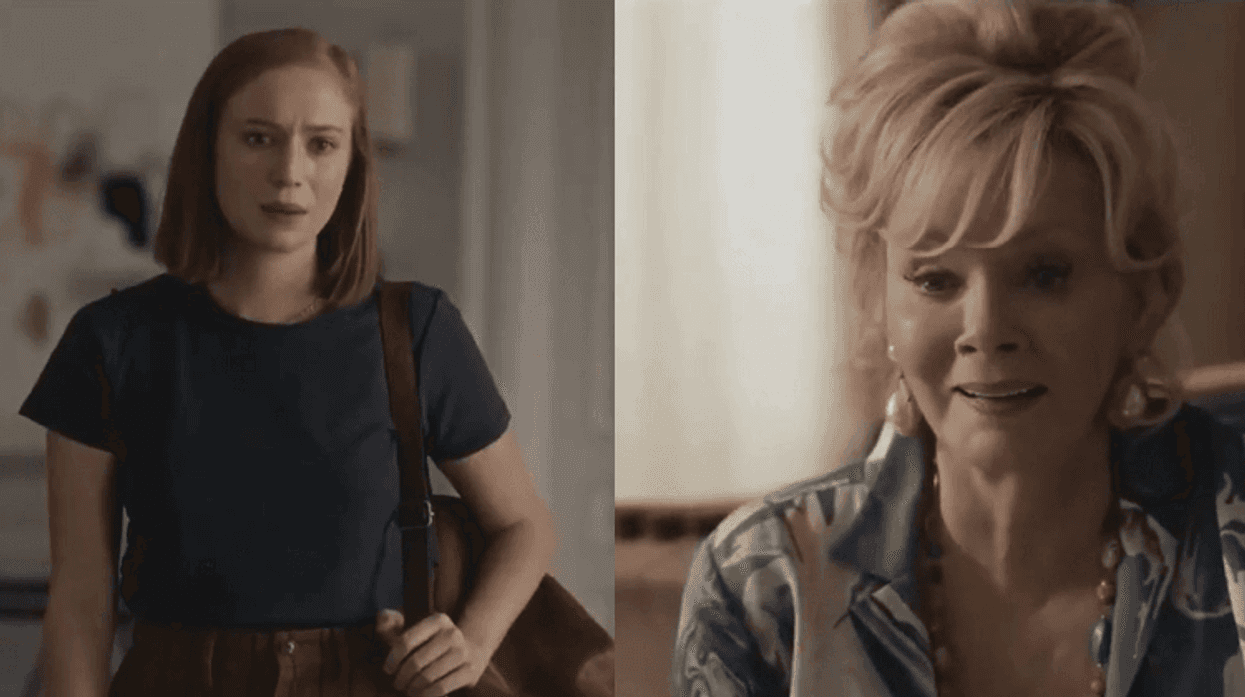



















































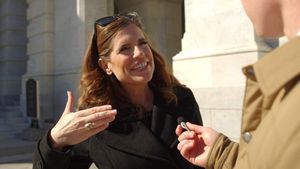

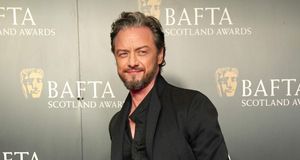

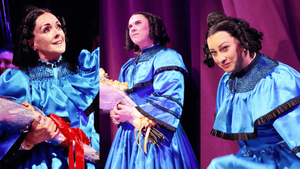


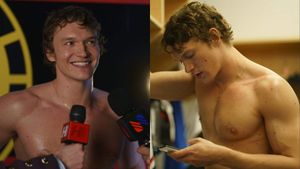


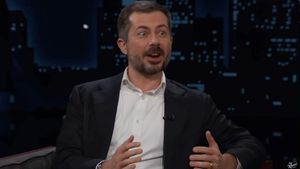
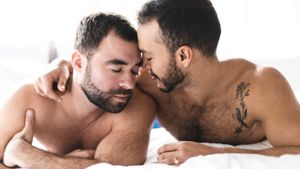




Charlie Kirk DID say stoning gay people was the 'perfect law' — and these other heinous quotes